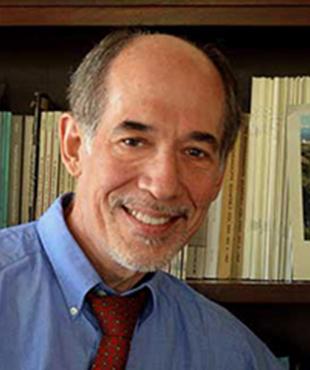
Jerry Brandell
Jerry Brandell values psychoanalysis in clinical practice as teacher, editor and scholar
Academic journals may come and go, but Psychoanalytic Social Work is running strong at 30.
Psychoanalytic Social Work was founded and is still edited by Jerrold Brandell, PhD ’82, an alumnus of the University of Chicago Crown Family School of Social Work, Policy and Practice.
“We get more submissions now, I think, than we ever have,” said Brandell, a Distinguished Professor Emeritus in the School of Social Work at Wayne State University. “The next two or three issues are spoken for in terms of what we’re going to publish.”
Brandell’s work as a journal editor will be among the topics he will discuss at National Taipei University starting in early March as a Fulbright Foundation Specialist awardee.
He already has an extensive record of international travel and scholarly collaborations. He has served as a visiting professor at the Zurich University of Applied Sciences in Switzerland, the Lund University School of Social Work in Sweden, and National Taipei University.
He also has led workshops and lectured widely on clinical topics in England, Scotland, Crete, Greece, Spain, Sweden, China, France, Israel, Switzerland, Taiwan, and New Zealand.
The Crown Family School’s Edith Abbott Award for lifetime achievement in 2017 stands among the many honors Brandell has received during his career. His publication record includes 16 books, the most recent a fully revised second edition of Essentials of Clinical Social Work (Cognella, 2022).
“My publications focus primarily on psychoanalytically informed practice, which has been my consuming interest since I attended University of Chicago many years ago,” he said. That approach has never been widely embraced in social work, however.
“Probably less so today than in the past,” said Brandell, who sees his journal as part his contribution to highlight the importance of psychoanalytic ideas.
“They have tremendous relevance to social work practice,” he said. Many faculty members today who teach clinical methods lack exposure to theories that Brandell considers quite important.
“A deeper understanding of the contribution psychoanalytic thought makes to the clinical enterprise is something I have felt committed to in my own research, scholarship and teaching over the years.”
Although now retired from Wayne State University, he still teaches occasionally for the Michigan Council for Psychoanalysis and Psychotherapy, which he served as president in 2021-22. He also continues to do clinical supervision.
“One thing I’m surprised at is how poorly equipped many clinicians are for clinical practice. In a lot of cases, they’ve never really had to analyze clinical process, which I saw as essential. It made such a difference for me in my own training.”
He has provided such training at the Crown Family School’s Professional Development Program in about half a dozen workshops on therapeutic storytelling.
“It’s a passionate interest of mine. Theoretically driven therapeutic storytelling within a dynamic frame,” he said.
William Borden, lecturer emeritus in the Crown Family School, served on the editorial board of Psychoanalytic Social Work for two decades. Borden called Brandell “an exemplar of the scholar-practitioner tradition” who challenges clinicians to engage theoretical understanding and research across diverse fields of study as they carry out their work.
“More and more, graduate programs in social work have embraced reductive, skills-based courses of study, stressing technical procedures rather than theoretical understanding, critical thinking, and individualized approaches to help and care,” Borden said. English pediatrician and psychoanalyst Donald Winnicott referred to these approaches as “experiments in adapting to need,” he noted.
Brandell, meanwhile, has urged practitioners to master a range of theories, therapeutic languages, models and methods.
“Brandell cares deeply about psychoanalytic ways of understanding and the essential concerns and values that have shaped the social work tradition over the years,” Borden said. “I so appreciate the energy of mind, thought, and care he brings to his work as a teacher, clinician, editor and writer.”
Although many schools of social work do not teach psychoanalytic and theoretical practice. The Crown School has always been an exception “for which I’m eternally grateful,” Brandell said. “The school had strong faculty who were psychodynamically trained and interested in that area.” Among them were Bernice Simon and Janet Kohrman. Also Erika Fromm, with whom he worked closely and who became a close friend after his graduation.
“I’m not sure what I would be doing today had it not been for my doctoral work at University of Chicago. It was transformative,” Brandell said. “I had wonderful professors.”